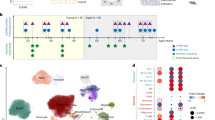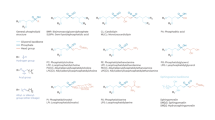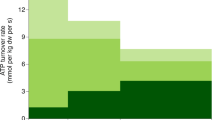Abstract
Quantification of the metabolic response aids in ascertaining the nature and extent of the energy requirements imposed by exercise. During high intensity exercise, virtually all of the energy is supplied by the net oxidation of glycogen while fat oxidation plays a more prominent role during lower intensity exercise. Therefore, the lower limit of carbohydrate required above resting needs is equal to the portion of the total energy cost derived from carbohydrate sources. There is no upper limit of additional carbohydrate intake that could be eaten to satisfy the extra caloric requirement since carbohydrate intake will restore any endogenous energy stores that were used during exercise, regardless of the intensity of exercise. The recommendation of a high carbohydrate intake to provide caloric balance in exercising individuals is supported by the observation that exercise performance at high intensity is improved by a high carbohydrate diet, and exercise performance at low intensity is relatively insensitive to the source of the caloric intake. Limited dietary studies are consistent with predictions based on the metabolic response. At exercise intensities below 65% VO2 max, the percent fat and carbohydrate in the diet makes little difference on exercise performance, provided adequate time is allowed to adapt to a high-fat diet. On the other hand, exercise ability during high-intensity exercise is significantly limited by a high-fat diet. A consideration of importance beyond the aspect of energy balance is the anabolic effect of insulin on muscle protein synthesis after exercise. Provision of carbohydrate after exercise is likely to stimulate muscle protein synthesis to a greater extent than a corresponding amount of fat. Dietary fats may offer practical advantages to the athlete but if fats are consumed at the expense of carbohydrate intake, many established benefits of high carbohydrate intake in terms of performance may be sacrified.
This is a preview of subscription content, access via your institution
Access options
Subscribe to this journal
Receive 12 print issues and online access
$259.00 per year
only $21.58 per issue
Buy this article
- Purchase on Springer Link
- Instant access to full article PDF
Prices may be subject to local taxes which are calculated during checkout
Similar content being viewed by others
Author information
Authors and Affiliations
Rights and permissions
About this article
Cite this article
Miller, S., Wolfe, R. Physical exercise as a modulator of adaptation to low and high carbohydrate and low and high fat intakes. Eur J Clin Nutr 53 (Suppl 1), s112–s119 (1999). https://doi.org/10.1038/sj.ejcn.1600751
Received:
Revised:
Accepted:
Published:
Issue Date:
DOI: https://doi.org/10.1038/sj.ejcn.1600751



